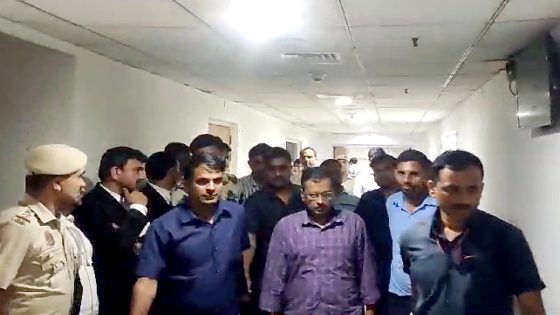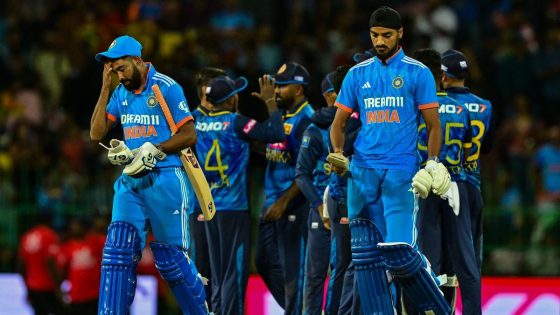During the Olympics, cyclists lapped around famous Parisian landmarks and ended in the shadow of the Eiffel Tower. But for the Paralympics road cycling, Paris 2024 organisers abandoned the picturesque centre.
Instead, it’s taking place in the humble Clichy-sous-Bois, a satellite town about 20 kilometres north-east of central Paris. The start and finish is at a community sports centre surrounded by half-finished apartment buildings.
Alana Forster rides through Clichy-sous-Bois.Credit: Getty Images
The safety of the venue is also under question, with one Paralympics Australia staffer falling twice after tripping over an unmarked step. The exit walkway for hand-cyclists was almost too narrow for two riders to fit, making some stops for media interviews uncomfortable. Paris 2024 organisers have been contacted for comment.
Several athletes said it would have been great to finish in a more iconic environment.
Loading
“It would have been nice to finish under the Eiffel Tower like the able-bodied,” Hicks said.
Lemon agreed, but said the Paris cobblestones may have been a bit much for some riders.
Lemon said she was still feeling dizzy and tucked in a ball on the sideline when she was told she’d won silver.
It’s a step up for Lemon, who snagged bronze in the same event in Tokyo.
“My heart’s just racing,” she said. “It hasn’t quite set in yet. I’m pretty over the moon.”
The course laps through the town, has two sharp hills and a section through a forest. Lemon said it felt particularly fast.

Lauren Parker competes during the H1-3 road time trial.Credit: Getty Images
“It was over before I thought it was over,” she said.
Lemon acquired a brain injury and was permanently weakened on one side of her body when she was hit by a car while riding to work.
Loading
But one of her biggest challenges on the bike is vertigo; she gets very dizzy taking corners and riding downhill.
“It’s really hard to overcome. There’s only so much I can do,” she said.
“There’s a bit going on for me that people probably don’t see. A lot of the cognitive problems that I experience on a bike aren’t classified.”
Parker acquired paraplegia in 2017 after a high-speed triathlon training ride. She experienced another bike accident in the past year that rocked her and forced a change in her race style.
“It’s been a mental game to get through my bike accidents, every single day, pushing myself through training,” she said. “I couldn’t be more proud of myself.”

Lauren Parker broke a 44-year Australian Paralympic record.Credit: Getty Images
Parker has less than 24 hours to prepare for the cycling road race, where she is eyeing off another medal.
Donohue, who severed muscles in his arm in a freak accident at 15, is also chasing gold in the road race: “I prefer to race other people rather than the clock, but they’re also the race with the most variables; I crashed out of both in my last two Paralympic road races, so third time’s the charm.”
Hicks was trying to stay positive after finishing his race third-fastest.
“We can’t be disappointed with standing on the podium, but we came here with the plan of winning, so it’s a shame,” he said.
“I could barely feel my hands as I crossed the finish line … I couldn’t have pushed any harder.”

Darren Hicks poses with his bronze medal.Credit: Getty Images
Hicks, who lost his right leg after a horror truck crash, said he struggled mentally after the high of winning gold in Tokyo.
“It’s a weird one where you succeed, you have all these dreams come true, and then it’s almost like an emptiness,” he said. “We’ll see how the wind down after this one goes.”
Forster, who has a leg impairment after a car crash two years ago, said she wished people were more aware of the struggles of para-athletes.
“Unfortunately, a lot of the public don’t see the behind-the-scenes. They see the amazing achievements that our team’s been able to do on the sporting field,” she said.
“No one here whinges about the difficulties they have.”
Source Agencies



